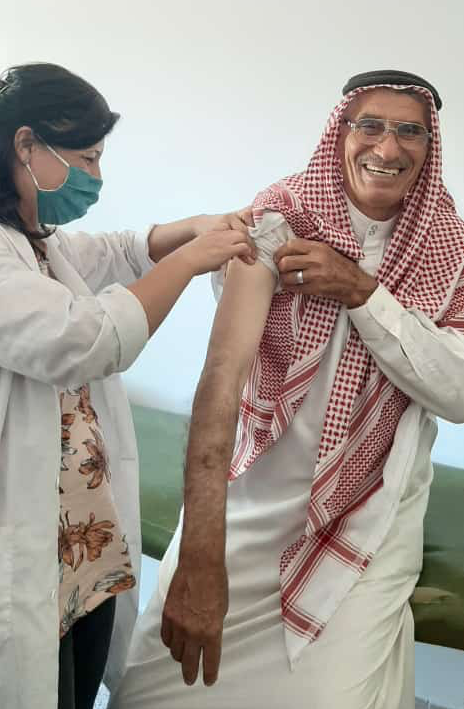 11 August 2021 – More than 355 500 total doses of COVID-19 vaccines have been administered in Syria as of 9 August as part of ongoing efforts to protect priority groups and control virus transmission. This includes 55 500 doses administered in northwest Syria and 19 354 doses administered in northeast Syria.
11 August 2021 – More than 355 500 total doses of COVID-19 vaccines have been administered in Syria as of 9 August as part of ongoing efforts to protect priority groups and control virus transmission. This includes 55 500 doses administered in northwest Syria and 19 354 doses administered in northeast Syria.
This coverage reflects less than 1% of the total population who have been vaccinated with one dose and 0.6% who are fully vaccinated, making Syria one of the countries with the lowest vaccine coverage globally.
“In line with WHO recommendations, Syria’s vaccination strategy aims to first reach people who are more at risk of serious illness if infected with COVID-19. WHO is working with national health authorities to regularly review and update Syria’s national plan to deploy vaccines and deliver them to identified target populations, taking into account anticipated limited supplies,” said Dr Akjemal Magtymova, WHO Representative and Head of Mission in Syria.
Three main groups are prioritized for vaccination: health care workers, people over 55 years of age, and people with chronic diseases. Other priority groups included internally displaced people living in camps, prisoners, and teachers. In northwest Syria, vaccination teams are initially prioritizing health care workers as per the vaccination strategy.
An additional 2.36 million doses of vaccines are expected to be delivered to Syria over several consecutive shipments in the coming months through the COVAX Facility, including 493 680 doses allocated for northwest Syria. This is a substantial increase in the supply of vaccines, but still not enough to reach the target 20% of the population planned to be vaccinated by end of 2021 as per the national vaccine deployment plan.
National health authorities are conducting trainings for different categories of service providers to cope with the expected surge in supply and demand for COVID-19 vaccines. In parallel, WHO is increasing knowledge and awareness of COVID-19 vaccines among health workers across the country through printed materials, face-to-face sessions, and community dialogues, with a special focus on health staff working in camps hosting internally displaced people in northeast Syria.
To address vaccine hesitancy and increase demand, WHO is strategizing new means to reassure the public that the vaccine is both safe and crucial against the spread of COVID-19. WHO is working with the Ministry of Health and UNICEF to support a mass public information campaign planned to start in mid-August. The campaign aims to reach different groups such as the elderly, health workers, and students through community leaders, influencers, and online and off-line channels that address key issues, including side effects, the vaccine registration process, and correcting misinformation.


